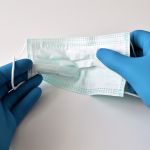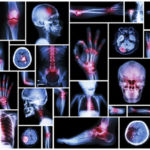EDS Diagnosis
Top Ten Reasons EDS SUCKS!
The votes are in! One hundred and sixty-seven (167) of you responded to our survey about the things that SUCK about EDS. What made it into the top spot as the worst of all? Where did your dissatisfactions rank? Scroll down to find out! How we tallied the results: Each respondent received the same 19 […]
Podcasts on Ehlers-Danlos Syndrome
With growing awareness about the Ehlers-Danlos syndromes, varying resources in different types of media developed over the last years. Our Chronic Pain Partners’ Team is collecting their favorite books, podcasts and films on EDS and its comorbid condition in a series of listicles you will find on our website over the next months. We have […]
HEDS or HSD: Study Question Diagnostic Criteria
“The 2017 [hypermobile Ehlers-Danlos Syndrome diagnostic] criteria were introduced to improve diagnostic specificity but have faced criticism for being too stringent and failing to adequately capture the multisystemic involvement of hEDS,” states a paper titled “Looking back and beyond the 2017 diagnostic criteria for hypermobile Ehlers-Danlos syndrome: A retrospective cross-sectional study from an Italian reference […]
Books on Ehlers-Danlos Syndrome
With growing awareness about the Ehlers-Danlos syndromes, varying resources in different types of media developed over the last years. Our Chronic Pain Partners’ Team is collecting their favorite books, podcasts and films on EDS and its comorbid condition in a series of listicles you will find on our website over the next months. We are […]
Part Two: HEDS Researchers Explain Clinician-Associated Trauma
This is the second article in our series covering psychological medical trauma. The first article provided an introduction to what concepts of psychological medical trauma exist and the newly-created concept of clinician-associated trauma. It also introduced a study regarding hEDS patients and clinician-associated trauma. This article will look deeper into the details of this study […]
Part One: EDS & Psychological Medical Trauma: An Introduction
[Content warning: trauma, PTSD, mental healthcare, negative clinician behavior, difficult medical encounters] Have you ever read something that left you speechless? I have so many thoughts and feelings about this article – ones that I can’t express with any sort of coherence at the time. What I can say: clinicians READ THIS (finger pointing down […]
EDS, Dating & Internalized Ableism
I sat in my car on the edge of the San Francisco Bay during a huge storm staring at my phone, finger hovering over the button on a dating app to post a profile that, if pushed, had the potential to change my life. I had recently moved back to the Bay Area and was […]
The First Steps of Medicine: Unraveling S.O.A.P. Notes from a First-Year Medical Student
Many of us can often feel like we are ‘professional patients’ managing our care as a seemingly never-ending full-time job of its own. But for a moment, try picturing yourself as a first-year medical student. What tactics can you imagine you might need to learn to keep the volumes of scientific and medical data organized […]










